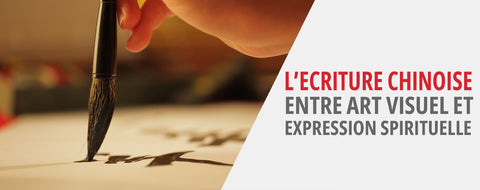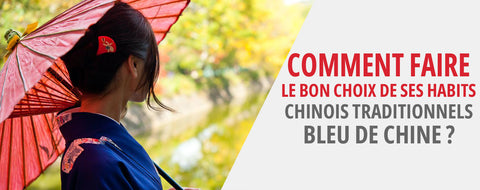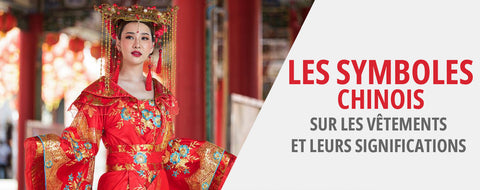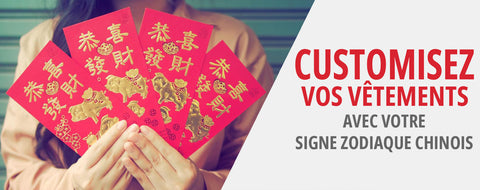
Traditional Chinese Festivals and Celebrations
reading - words
Traditional Chinese holidays and celebrations are based on the Chinese calendar. It is a lunisolar calendar : the first day of each month coincides with the new moon, but a year is based, as for our calendar, on the Sun. This is why Chinese festivals and celebrations are not always on the same day according to our calendar. Here is a non-exhaustive list of the most important traditional Chinese festivals and celebrations, depending on the region, other festivals are celebrated.
Chinese New Year
Chinese New Year (农历新年) occurs on the first day of the Chinese calendar, but is celebrated for about fifteen days. This is why its date is not fixed on our calendar, but is always between January 21 and February 19. It is the most important celebration of Chinese culture.

Preparations begin the week before the New Year: it is customary to pray, especially to Zao Jun, the god of cooking, one of the main domestic gods in China, or to clean one's house to sweep away bad luck. Then comes the celebration of the Chinese New Year, also called party of spring, whose customs and celebrations vary by region. Generally, the Chinese wish to get rid of the bad influences of the past year and make a fresh start.

The New Year is traditionally celebrated with a large meal similar to our Christmas meal. In northern China, Chinese dumplings are usually served and eaten around midnight, to bring luck. Indeed, their shape is reminiscent of the Chinese Sycee, a silver ingot used until the 20th century in Chinese trade. At the same time, in southern China, a Nian Gao, or New Year cake, made from sticky rice, is more often prepared because the characters of this cake, 年糕, can also be translated as "prosperous year". Since all efforts are made to bring good luck for the coming year, it is forbidden to clean on this day, to avoid sweeping away good fortune.

At midnight, the Chinese celebrate the New Year by lighting fireworks, and making as much noise as possible, so as to ward off evil spirits. evil spirits, then continue the celebrations until late.
The first day of the new year, besides being the one where we welcome the gods and good fortune, is the one dedicated to the elderly. Thus, it is customary to visit one's parents, grandparents, or other elderly relatives.
On the second day, it is customary for married women to visit their parents and other relatives, since traditionally they spent more time with their husbands' families.
The third day is that of the God of fiery anger, and having guests can bring bad luck, so a visit to the temple is preferable.
Only on the fourth day, businesses and shops return to normal, and people celebrate the New Year with their colleagues.

The meals and celebrations continue until finally arriving at the 15th day, the day of lanterns. It is customary to eat tāngyuán, rice flour balls soaked in boiling sugar water or meat broth. The Chinese then light candles outside their homes, so as to guide wayward spirits. More importantly, it is on this last day of celebrations that families go out into the streets and light lanterns paper lanterns before letting them fly into the sky, metaphorically leaving their past for a new beginning. These lanterns are almost always red, to celebrate good fortune.
The Qing Ming Festival
The Qing Ming Festival is roughly similar to the European All Saints' Day, and takes place around the beginning of April according to our calendar. In China, temperatures then begin to rise and rains become more frequent, marking the beginning of the plowing and sowing seasons. It is a festival closely linked to agriculture, but not only. Indeed, on this day, it is customary for the Chinese to go to the graves of their ancestors to clean the tombs, but also to pray to their ancestors, and make ritual offerings to them, including traditional dishes and incense sticks.

This holiday includes both spring celebrations and a death day, making it a celebration that mixes joy and sadness. It is then customary to go out and enjoy nature, as the good weather arrives. On this day, Chinese families like to go out and fly kites by hanging small lanterns on them. After twirling them, the Chinese cut the strings holding the kites, freeing them and the lanterns. Beliefs say that this brings good fortune and wards off illness.
The Dragon Boat Festival
The Dragon Boat Festival occurs on the fifth day of the fifth month of the lunar calendar, which is usually in June according to our calendar. According to legend, this celebration, which is over 2,000 years old, originated as a tribute to Qu Yuan (340-278 BC). Qu Yuan was a famous Chinese poet known for his patriotism, who is said to have drowned himself after being expelled from the state. His contribution to ancient Chinese verses is enormous and he owes his popularity to him.

On this day, it is customary to participate in or attend dragon boat races, the front and back of which are shaped like a traditional chinese dragon. Legend has it that these races symbolize the people who rushed to their boats to save Qu Yuan from drowning. On this day, it is also common to eat zongzi, stuffed rice balls. Find out what a dragon boat racing !
Qixi Festival
The Qixi Festival is to China what the Valentine's Day is in the West, and usually falls in August according to our calendar. The festival is based on the very old legend of Niu Lang and Zhi Nu. Niu Lang was a young farmer, who, while walking his cows, saw fairies bathing. Encouraged by one of his oxen, who was teasing, he undertook to steal their clothes. The youngest and most beautiful of the fairies, Zhi Nu, came to meet him to retrieve the things. They thus fell madly in love and married. But the goddess of the heavens discovered this relationship between a mortal and a fairy, and then created the silver river, condemning Zhi Nu to weave on her side of the river while observing her beloved. According to mythology, the silver river symbolizes the Milky Way, and Niu Lang and Zhi Nu represent the stars Altair and Vega respectively.

During this festival, customs vary by region, but it is common for women to pray to Zhi Nu, especially for her legendary weaving skills, but also for fortune in love. Give your valentine a typically Chinese gift for the Qixi festival, a superb Chinese jewelry boxes, from home Dublein. Did you know that the jewelry box was invented in China?
Mid-Autumn Festival or Moon Festival
The Moon Festival usually takes place in August. It is the second largest festival after the Chinese New Year. The tradition comes from the fact that ancient Chinese civilizations observed the relationship between lunar movements and seasonal changes. To thank the moon, they would offer sacrifices to it. The celebration also commemorates Chang'e, who, according to Chinese mythology, drank an elixir to protect her beloved husband, which caused her to fly to the moon, where she resides indefinitely in a jade palace.

On this Mid-Autumn Festival, Chinese families make offerings to the moon, observe the full moon, eat mooncakes, and express their feelings to their relatives who live far away, in tribute to Chang'e who was separated from her husband. Other celebrations are common in some regions, such as traditional dragon dances and lantern flights.
Ghost Festival
The Ghost Festival takes place on the fifteenth night of the seventh month of the lunar calendar, known as the month of ghosts, which is usually in August or September for our calendar. During this night, it is believed that the Gates of Hell open and allow ghosts, including ancestors, to return to Earth. On this day, the Chinese have the custom of burn incense and papers representing money, and offering food as an offering to wandering spirits. The idea is to appease these spirits.

The month of ghosts peaks on the fifteenth day because the Chinese believe that ghosts who have wandered the earth for two weeks are hungry, so they are offered food, often vegetarian dishes. The Chinese also seek to take care of lonely spirits, those who no longer have family. Customs vary according to families and regions. For example, some families like to celebrate this day by going to the opera, in which case it is common to leave the front row empty for the spirits. Other families, after leaving offerings, cleanse their bodies with lotus leaves, a sign of purity, to prevent the spirits from following them home. Some regions also commemorate this month of ghosts by placing miniature boats on rivers, to which they hang lanterns, in order to guide the ghosts and wandering spirits.
Double Ninth Festival
The Double Ninth Festival, or Chongyang Festival, is so called because it occurs on the ninth day of the ninth lunar month, usually in October. In China, the number nine is closely associated with the Yang, masculine symbol, as opposed to the Yin, feminine symbol. This double nine then brings too much Yang and is potentially dangerous. To protect oneself from danger, it is customary to climb or hike in the mountains, to protect oneself from illnesses.

Indeed, during the Dang Dynasty, many poets praised the merits of mountain air, and today, families enjoy sharing a moment of hiking or climbing. Many also enjoy admiring the chrysanthemums that bloom at this time, or drinking them as liqueur. Indeed, it is believed that chrysanthemums can drive away evil spirits, ward off illness and bad luck.
The second meaning of the festival is due to the fact that the number 9, "jiu" in Chinese, also means "long", relating to longevity. It is then customary to commemorate the elderly, by visiting them, taking them to the mountains, or spending time with family.
Winter Solstice Festival
The Winter Solstice Festival, also called Dongzhi Festival, is a very important celebration in China, since it is the day when the night is longest. After this day, the sunshine time becomes longer and longer, which brings hope to the Chinese. This is why there was a time when Dongzhi Festival was as important as Chinese New Year. Typically, Chinese families celebrate this day with a meal, usually by eating Chinese dumplings, sticky rice balls, or by worshiping the gods, heaven, but also their ancestors, to bring good fortune.





